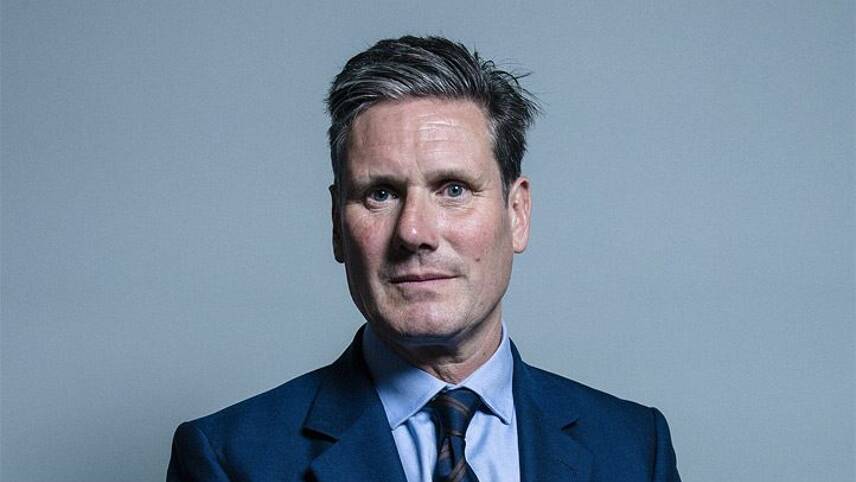Register for free and continue reading
Join our growing army of changemakers and get unlimited access to our premium content

Starmer has hard work ahead of him following Labour's dismal General Election. Image: Chris McAndrew / CC BY (https://creativecommons.org/licenses/by/3.0)
The December General Election feels like a lifetime ago, given the disruption instigated by a global pandemic in recent months. But, almost five months on from Labour’s worst performances since the 1930s, a new era of leadership is taking place.
Jeremy Corbyn announced his intention to stand down as leader to the UK’s main opposition following the electoral defeat, but has remained in that capacity as part of a grace period as Labour party members voted on a new leader.
Over the weekend, the Labour Party elected Keir Starmer as its new leader. The MP for Holborn and St Pancras, 57, won more than 56% of the party vote, beating electoral candidates Lisa Nandy and Rebecca Long-Bailey in one round.
While Long-Bailey has been acknowledged as the “architect” of Labour’s Green New Deal vision and Nandy has worked ad the party’s shadow energy secretary, Starmer’s green policy history is slightly more enigmatic.
A Green Deal for all
Starmer, a former crown prosecutor, had used his leadership campaign to champion policies aimed at improving social equality and pursuing accelerated action on climate change.
Starmer supports the Green New Deal plan set out in the Labour 2019 manifesto. He claims that the ethos of the project should be “hardwired” into every political decision made by the Party both at a national and international level. Starmer believes that a national investment bank and green transformation fund could be set up to finance the transition.
Starmer has also claimed that rewilding was essential in the “fightback against the climate and environmental emergency”.
In an opinion piece for the Guardian, Starmer called for the UK to act as a driving force for an international Green New Deal.
“We need a green new deal hardwired into every level of government, from Whitehall departments to local councils. For communities across the country, such a deal would mean good jobs in new green industries, more power and ownership over local decisions, cleaner air and warmer, more secure homes.
“But a domestic programme to tackle the climate crisis will not be enough. We know that climate change is an unavoidably international problem – there is no way our islands alone can escape it. Our efforts at home must be matched by those abroad – we must internationalise the green new deal.”
Starmer also confirmed plans to develop a “net-zero coalition” and has spoken of his desire to use COP26 – which has now been delayed – as the “charge for an international response” to climate change.
Voting history
In the build-up to the leadership vote, the Guardian scored Starmer, Nandy and Long-Bailey on their record on the climate crisis. In that analysis, Long-Bailey and Nandy both came out with scores of 100% for voting records on climate policy. As Starmer had only been present for two votes, the Guardian deemed the information available insufficient to score him.
For the votes he has been present for, Starmer generally voted positively on green policy. Starmer voted to rebuild the economy so it works for the many, not just rewarding those at the top, and for a green industrial revolution to decarbonise the economy and boost economic growth.
Earlier in the year, the Labour for a Green New Deal ranked the three candidates based on answers to their five questions sent to each candidate. Based on the responses, Starmer ranked second behind Long-Bailey.
While the rankings don’t look too promising, SERA – Labour’s environment campaign gave him its important leadership nomination backing.
“We looked hard at the record and competences of all of the candidates and it was very clear to us that Keir stood out as the candidate who had consistently supported SERA’s positions within the party and in parliament – opposing the expansion of Heathrow airport, standing up to protect environmental legislation in the Brexit debate, and campaigning with us on air quality,” SERA said in a statement.
Starmer has previously claimed that a tax system should be introduced in a way that incentivises people to look for alternatives to flying. Notably, Starmer voted against the Heathrow expansion when tabled by Parliament in 2018 although DeSmog notes that he’s taken “a number of donations” from the Unite union, which has lobbied in favour of the runway expansion.
Starmer was also one of the MPs to oppose the HS2 rail project, which the Government claims will assist with the net-zero ambition. The group of MPs opposed the projects based on the impact it would have on the environment and people living in where the project is planned.
Matt Mace


The world’s first self-funding near-zero CO2 plan can be seen at: http://www.kadir-buxton.com/near-zero-co2-plan